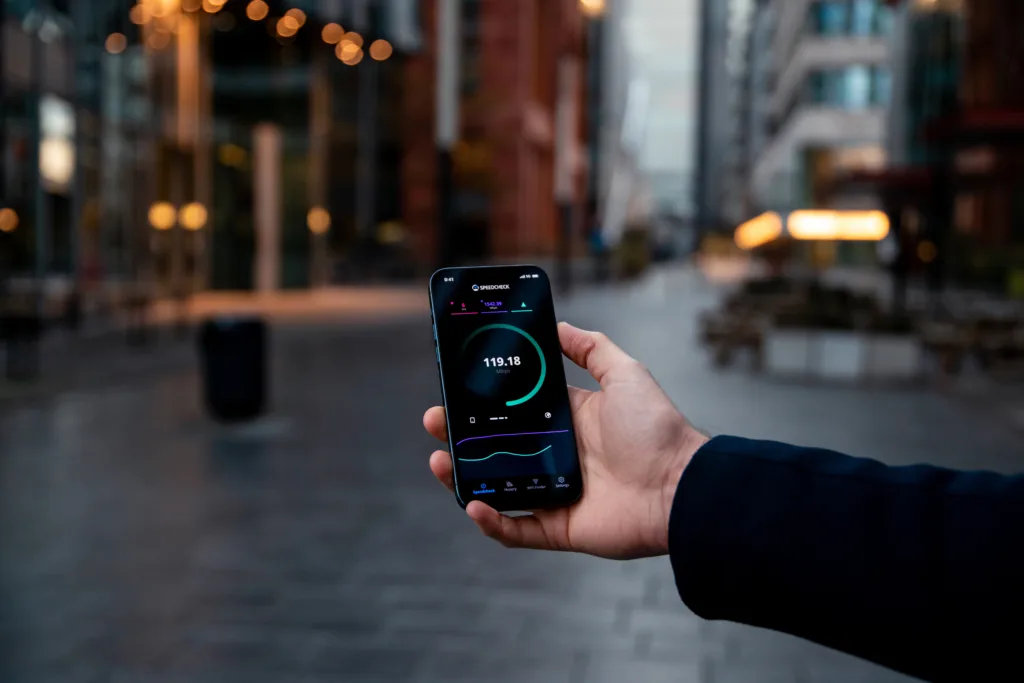As a modern smartphone user, you may have heard about the term ‘data roaming.’ But do you know what it means and whether you should have it turned on or off? In this article, we will explore the concept of data roaming and help you determine if it should be on or off on your device.
Data roaming refers to the use of mobile data services outside of your carrier’s network coverage area. When you travel outside of your home country, your smartphone’s mobile data may be routed through a foreign carrier’s network. As you can imagine, this coms with additional charges that are usually much higher than your regular mobile data usage.
So, should data roaming be on? The answer is, it depends. If you are traveling abroad and need constant access to mobile data, then you should have data roaming turned on. This will allow you to use your smartphone as you would at home, allowing you to access the internet, make calls, and send texts. However, keep in mind that this will come with extra charges, so make sure to check with your carrier about international roaming rates before you travel.
On the other hand, if you are not traveling abroad, then there is no need for you to have data roaming turned on. In fact, it is in your best interest to turn it off to avoid any unwanted charges. When you turn off data roaming, you won’t have access to mobile data outside of your service area. However, normal text messages don’t take up data, so you can still send and receive texts while roaming.
It’s important to note that MMS messages, which include photos or videos, do use data. So, if you want to avoid any additional charges, you can also turn off MMS messaging while roaming.
Whether you should have data roaming on or off depends on your specific situation. If you are traveling abroad and need constant access to mobile data, then you should have it turned on. But if you are not traveling abroad, then it is best to turn it off to avoid any unwanted charges. Remember to always check with your carrier about international roaming rates before you travel to avoid any surprises on your bill.
Should I Have Data Roaming Turned On Or Off?
Data roaming refers to the use of mobile data services while traveling outside of your home network’s coverage area. In general, it is recommended to turn off data roaming unless you absolutely need it. Here are a few reasons why:
1. Cost: Using mobile data services while roaming can be incredibly expensive. Many carriers charge exorbitant rates for data usage outside of your home network. If you don’t need to use mobile data while traveling, turning off data roaming can help you avoid unexpected charges on your phone bill.
2. Security: When you use data roaming, your device is connecting to networks that may not be as secure as your home network. This can leave you vulnerable to hacking, malware, and other security threats. By turning off data roaming, you can reduce your risk of cyberattacks and protect your personal information.
3. Battery life: Using data roaming can also drain your phone’s battery more quickly than usual. This is bcause your device is constantly searching for a network to connect to, which uses up a lot of power. By turning off data roaming, you can extend your battery life and avoid running out of juice when you need your phone the most.
Unless you absolutely need to use mobile data while traveling, it is generally recommended to turn off data roaming. Doing so can help you avoid unexpected charges, protect your personal information, and extend your battery life.

What Happens If I Turn Off Data Roaming?
If you turn off data roaming on your mobile device, you will not be able to access mobile data services outside of your service provider’s coverage area. This means that you will not be able to browse the internet, use mobile apps or access any oter online services that require a mobile data connection. However, you will still be able to make and receive phone calls and text messages, as these services do not use mobile data.
It is important to note that turning off data roaming will not affect your ability to use Wi-Fi networks, as these connections do not rely on mobile data services. If you have access to a Wi-Fi network, you will still be able to use the internet and other online services as normal.
If you receive MMS messages, which include photos or videos, these messages will use data, even if you have turned off data roaming. To avoid incurring data charges, it is advisable to turn off MMS messaging or restrict it to Wi-Fi only.
Turning off data roaming will limit your mobile device’s ability to access mobile data services outside of your service provider’s coverage area, but will not affect your ability to make phone calls or send text messages.
What Happens If I Turn On Data Roaming?
If you turn on data roaming, your phone will connect to a different network than your home network when you’re outside its coverage area. This allows you to continue to use your phone for calls, texts, and data services while you’re traveling, but it may result in additional charges on your monthly bill. Data roaming charges can be significantly higher than regular data usage charges, so it’s important to familiarize yurself with your carrier’s policies before enabling data roaming. Some carriers may offer international roaming packages or add-ons that can help you save on data roaming charges, so it’s worth checking with your carrier to see what options are available to you. It’s also important to note that some apps on your phone may continue to use data even when you’re not actively using them, so it’s a good idea to check your data usage periodically to avoid unexpected charges.
When Should I Use Data Roaming?
Data roaming should be used when you are traveling outside of your home country and your carrier does not have coverage in the country you are visiting. It enables you to access the internet via various mobile networks that have international data roaming arrangements with your carrier. You may need to use data roaming to check your emails, browse the internet, or use mobile applications that require internet access. However, it’s important to note that data roaming can be costly, so it’s essential to check with your carrier about teir international data roaming rates and to consider using a local SIM card or Wi-Fi hotspot to save on costs.

Conclusion
Data roaming can be a useful feature for those who frequently travel abroad and require access to mobile data. However, for the majority of users, it is best to turn off data roaming in order to avoid unnecessary charges to your account. Text messages typically do not use data, but MMS messages that include photos or videos do, so it is important to be mindful of this when traveling. it is crucial to understand the implications of data roaming and to make informed decisions about its usage in order to avoid unexpected fees and charges.
